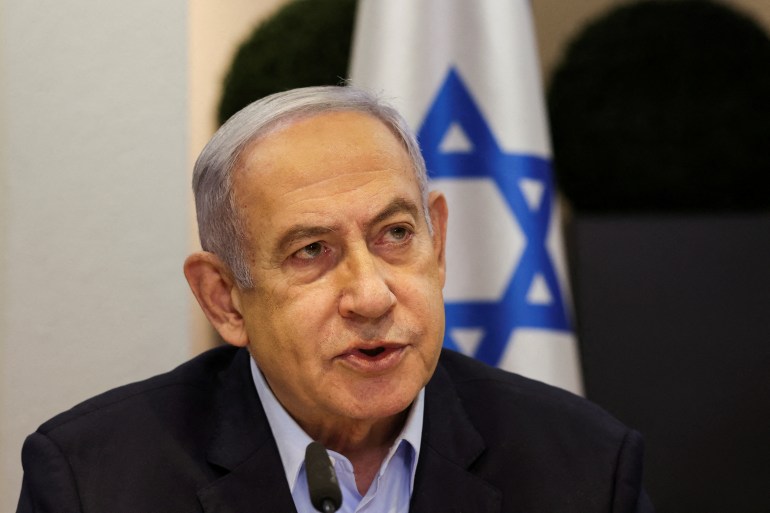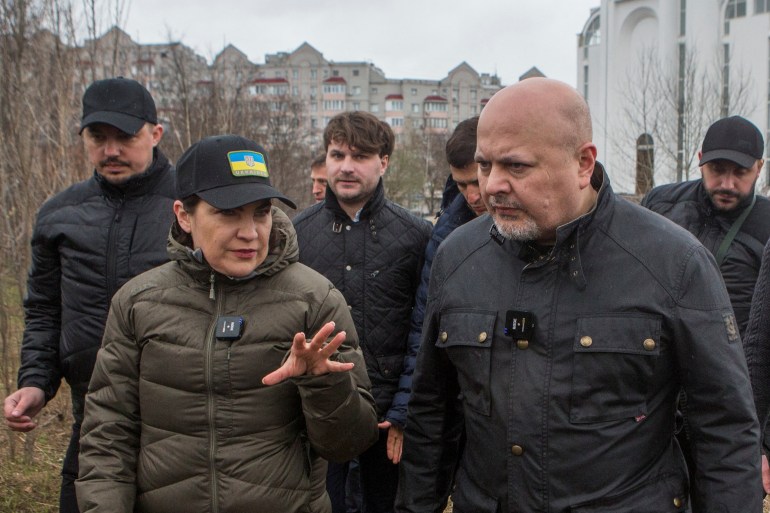Israel has long been accused of operating with impunity in the Palestinian territories it occupies, relying on support from the United States and the West as a whole to shield it from the fallout.
But a recent spate of media reports from Israel suggests that Israeli officials may be worried that the situation is changing as the International Criminal Court (ICC) reportedly plans to prosecute senior Israeli military and politicians for war crimes and crimes against humanity in Gaza to accuse.
Israeli media reports suggest that arrest warrants could be issued as early as this week and that Israel has asked the US to pressure the court not to issue them. Al Jazeera was unable to independently confirm the potential arrest warrants.
According to the Reuters news agency on Tuesday, the ICC spoke to medical personnel in Gaza about possible war crimes, reviving the discussion about possible arrest warrants.
In March 2021, an ICC investigation into Israeli conduct in the Gaza Strip and the occupied West Bank, as well as East Jerusalem since 2014, was launched under the leadership of former ICC prosecutor Fatou Bensouda.
In November last year, Bangladesh, Bolivia, the Comoros, Djibouti and South Africa brought Israel’s behavior to court again, leading current prosecutor Karim Khan to announce that ongoing investigations since Israel’s latest war in Gaza began in October were based on violence have been expanded.
A month later, during a visit to the West Bank and Israel, he said the court would investigate the crimes of both Israel and Hamas on and since October 7.
Why a three-year-old investigation in Israel has sparked such sudden concern has raised some questions.
Israel and the ICC
Israel is not a signatory to the Rome Statute, the treaty establishing the International Criminal Court, and therefore does not recognize its authority, nor does the United States.
Normally this would mean that the court could not investigate Israel; However, its jurisdiction extends to crimes committed by a member state or on the territory of one of its member states, which includes Palestine Palestinian Authority request in 2015.
Therefore, the court has the power to investigate serious crimes and issue arrest warrants against anyone – including Israeli soldiers and officials – involved in committing atrocities in the West Bank or Gaza Strip.
According to Israeli news agencies, arrest warrants could be issued in the coming days against Prime Minister Benjamin Netanyahu, Defense Minister Yoav Gallant and army chief Herzi Halevi, which could have significant implications for their political and military careers.
Netanyahu said on social media last week that Israel would “never accept an attempt by the ICC to undermine its inherent right to self-defense.”
Legal experts who spoke to Al Jazeera believe any charges would be related to Israel’s policy of using food as weapons to starve civilians in Gaza and Hamas’s decision to capture Israelis during its surprise attacks on October 7 gain weight.
“These two accusations are most easily traced back to senior management [of both parties]said Adil Haque, a law professor at Rutgers University in New Jersey.
Israel’s war on Gaza has killed nearly 35,000 Palestinians, left the enclave on the brink of famine and uprooted nearly all of the more than two million people who live there.
Israel has defended its behavior in the war under the pretext of self-defense after Hamas-led attacks on southern Israel on October 7 resulted in the deaths of 1,139 people and the capture of about 250 people.
Israel has since been charged with genocide at the International Court of Justice (ICJ), the United Nations’ highest court, which, like the ICC, is based in The Hague.
Experts believe ICC charges could further undermine the legitimacy of Israel’s war on Gaza and complicate its exceptional relations with European allies who are members of the Rome Statute.
“This would be a big moment for the ICC itself, for Israel and equally important for Israel’s allies,” said Hugh Lovatt, a senior political scientist and Israel-Palestine expert at the European Council for Foreign Relations.
“It would clearly be seen as further stigmatizing Israel … for its actions in Gaza.”
Political implications
Of the three people considered potential subjects for ICC arrest warrants, Netanyahu would face the biggest dilemma. He is already fighting for his political survival as he faces trial on corruption charges and over the security failures that enabled the Oct. 7 attacks.

As head of state, he could be banned from visiting the European Union, where all member states are theoretically obliged to arrest him as part of their obligations under the Rome Statute.
“There are 120 members [ICC] which would in principle be obliged to arrest them if they entered these countries, and there is the argument that any country – even if they are not a party to the court – could arrest them,” said Haque.
Israel claims to have the “most moral army in the world” and the Palestinians are a “stateless mass of disorganized, violent people who unjustifiably attack Israel,” said Alonso Gurmendi Dunkelberg, an international law expert and lecturer at King’s College London.
“Israel’s entire narrative… of the conflict is in danger,” Dunkelberg added. “If you start speaking on the fringes of the debate, you will find out [Israel] is before the International Court of Justice and is being tried for genocide… and then there is the ICC. sometime sometime, [Israel’s] The narrative really starts to weaken.”
Double standards
According to Lovatt, arrest warrants from the International Criminal Court against Israeli officials could have serious implications for Israel’s European allies, who would be forced to reconcile their exceptional relationship with Israel with their alleged support of the international rights-based order.
“European countries supported the ICC arrest warrant against it [Russian President] Wladimir Putin [for atrocities in Ukraine]”…So how can you come forward and suddenly reject or criticize an ICC indictment against Israeli officials?” he asked.

“If they again shield Israel from international responsibility, it will further underscore – in the eyes of many other countries in the Global South – that the West is engaged in this blatant game of double standards, and that will … undermine international law,” the order said .”
Dunkelberg added that there is a possibility that close Israeli allies who also have obligations to the ICC, such as France, Germany and the United Kingdom, could refuse to arrest indicted Israeli leaders who visit their countries.
Such a move would damage the court’s global credibility, but would not be unprecedented. In 2009, the ICC indicted Omar al-Bashir, the former president of Sudan, for war crimes, but African states refused to comply with the ICC’s arrest warrant.
At the time, European leaders and human rights groups criticized African states for failing to live up to their obligations under the Rome Statute, Dunkelberg said, adding that most leaders in the Global South were keenly aware of the double standards.
However, Europe could deal a death blow to the court if it refuses to comply with the ICC’s arrest warrants against Israeli officials.
This could set a precedent in which signatories to the Rome Statute simply reject ICC arrest warrants or withdraw from the court.
“If Israel suddenly only gets a passport when things get tough, that would be the final nail in the coffin. “It would lead to a massive crisis of legitimacy for the ICC,” Dunkelberg said.
“It is a political price for Europe to continue to act hypocritically.”
